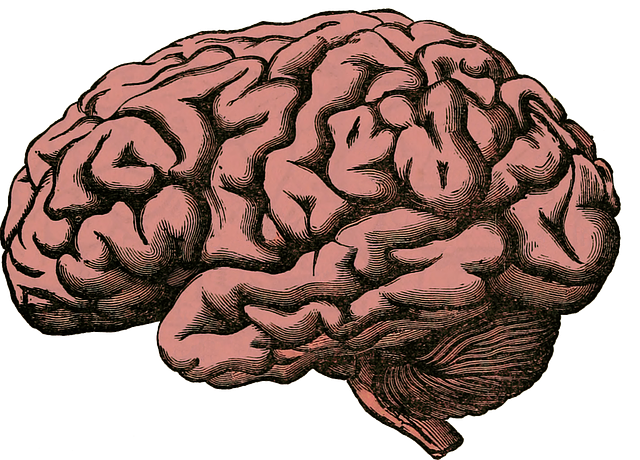Crisis intervention strategies are vital for supporting children with gender identity issues, focusing on emotion stabilization, coping mechanisms, and open communication. The goal is to empower kids with tools to manage future challenges while promoting resilience and overall well-being. Culturally sensitive therapy, incorporating Emotional Intelligence and conflict resolution techniques, along with stigma reduction efforts, is key. These strategies balance practical stress reduction techniques with ethical considerations for safe, respectful, and supportive intervention, fostering self-acceptance through mental wellness coaching and social skills training. (SEO keyword: Therapy for Children Gender Identity)
In today’s complex landscape, crisis intervention strategies are vital tools for mental health professionals. This comprehensive guide delves into the essential aspects of supporting children facing crises, with a specific focus on gender identity issues. We explore evidence-based therapy approaches tailored to young individuals navigating their unique challenges. From understanding crisis intervention as a cornerstone of mental health support to practical implementation and ethical considerations, this article equips professionals with guidance for effective care, particularly in the context of therapy for children with gender identity crises.
- Understanding Crisis Intervention: A Cornerstone of Mental Health Support
- Gender Identity Crises in Children: Unique Challenges and Approaches
- Evidence-Based Strategies for Effective Therapy
- Practical Implementation and Ethical Considerations in Crisis Intervention
Understanding Crisis Intervention: A Cornerstone of Mental Health Support

Crisis intervention strategies are a vital component of mental health support, especially for vulnerable populations like children navigating complex issues related to gender identity. In moments of crisis, whether it’s a sudden traumatic event or ongoing challenges, immediate and effective interventions can make a profound difference in an individual’s life trajectory. These interventions aim to stabilize emotions, provide coping mechanisms, and facilitate a path towards healing and growth.
Understanding the unique needs of children experiencing gender identity struggles is essential. Crisis intervention in this context involves creating a safe space for them to express themselves freely. By fostering open communication and building trust, therapists can help these young individuals explore their identities, enhance self-esteem, and develop inner strength. The goal is not just to address the immediate crisis but also to empower children with tools to manage future challenges, ensuring they receive the necessary therapy for children while promoting resilience and well-being.
Gender Identity Crises in Children: Unique Challenges and Approaches

Children experiencing a crisis related to their gender identity face unique challenges that require specialized and sensitive approaches. This is a complex issue often met with confusion and resistance, not just from children but also from their families and communities. A critical aspect of addressing this crisis involves fostering resilience within the child. Therapy for Children Gender Identity should focus on creating a safe space where kids can explore and understand their feelings without judgment. Building resilience equips them to navigate societal expectations and internal conflicts, enhancing coping mechanisms and self-esteem.
Cultural sensitivity in mental healthcare practice is paramount. Families come from diverse backgrounds with varying beliefs about gender roles and expressions. Therapists must be adept at tailoring interventions while respecting cultural norms and promoting inclusive practices. Moreover, boosting confidence during this journey is essential. Through positive reinforcement and encouragement, children can develop a strong sense of self, enabling them to embrace their authentic identities.
Evidence-Based Strategies for Effective Therapy

In the realm of crisis intervention, evidence-based strategies play a pivotal role in providing effective therapy for children navigating complex issues, including those related to gender identity. Research has underscored the significance of tailored therapeutic approaches that address the unique needs of each child. One such strategy is incorporating Emotional Intelligence (EI) into therapy sessions. By enhancing EI, therapists can help young individuals recognize and manage their emotions, fostering better decision-making skills and reducing impulsive behaviors often associated with crises.
Additionally, integrating Conflict Resolution Techniques has proven effective in crisis intervention. Teaching children constructive ways to handle disputes empowers them to navigate challenging situations healthily. This is particularly relevant when addressing gender identity concerns, as it encourages open communication and understanding among peers, thereby mitigating potential social conflicts. Furthermore, Mental Illness Stigma Reduction Efforts are crucial components of comprehensive therapy, promoting empathy and breaking down barriers that may prevent children from seeking help or expressing their true selves.
Practical Implementation and Ethical Considerations in Crisis Intervention

Implementing crisis intervention strategies requires a delicate balance between practicality and ethical considerations, especially when working with vulnerable populations like children navigating gender identity issues. The practical aspect involves swift and effective actions to de-escalate crises, such as using stress reduction methods tailored for young individuals. This could include techniques like deep breathing exercises, mindfulness activities, or even play therapy, which are age-appropriate and can help children calm down and express their feelings.
Ethical considerations are paramount to ensure the safety and respect of the child’s identity. Confidentiality and informed consent are crucial when engaging in therapy for children exploring gender identity. Mental wellness coaching programs that promote self-acceptance and provide a safe space for exploration should be developed with care, allowing individuals to make informed choices while considering cultural sensitivity and individual needs. Social skills training can also be integrated into these programs, fostering connections and supportive networks within the community.
Crisis intervention plays a vital role in supporting individuals, especially children navigating therapy for gender identity crises. By understanding unique challenges and implementing evidence-based strategies, mental health professionals can foster effective healing processes. The article has explored essential aspects, from the foundational understanding of crisis intervention to practical considerations, offering guidance to navigate these delicate situations with care and expertise. For parents and caregivers seeking support for their children’s gender identity, this knowledge base serves as a valuable resource, ensuring access to quality therapy and ethical practices.









